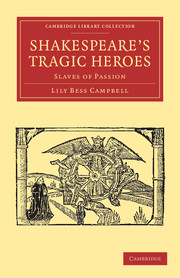CHAPTER FIVE
This Little World. Man as Microcosmos.
Published online by Cambridge University Press: 07 September 2010
Summary
Bacon summed up in his Advancement of Learning the theory of man as microcosmos:
The ancient opinion that man was Microcosmus, an abstract or model of the world, hath been fantastically strained by Paracelsus and the alchemists, as if there were to be found in man's body certain correspondences and parallels, which should have respect to all varieties of things, as stars, planets, minerals, which are extant in the great world. But thus much is evidently true that of all substances which nature hath produced, man's body is the most extremely compounded. For we see herbs and plants are nourished by earth and water; beasts for the most part by herbs and fruits, man by the flesh of beasts, birds, fishes, herbs, grains, fruits, water, and the manifold alterations, dressings, and preparations of these several bodies, before they come to be his food and aliment. Add hereunto that beasts have a more simple order of life, and less change of affections to work upon their bodies; whereas man in his mansion, sleep, exercise, passions, hath infinite variations; and it cannot be denied but that the Body of man of all other things is of the most compounded mass.
The first translator of Galen into English, John Jones, Physician, published in 1574 Galens Bookes of Elementes, as they be in the Epitome (whiche may very aptly, in my judgement, be Entituled, for the better understanding of the Readers, the Originall of all thinges naturall in the whole worlde: Confuting, as well the Errours of all them that went before time, as that hath or shal folowe hereafter of the Paracelcians: marvellous pleasaunt, and most acceptable for all sharpe wittes, desirous of wisedome, published foorth of Latine into English.
- Type
- Chapter
- Information
- Shakespeare's Tragic HeroesSlaves of Passion, pp. 51 - 62Publisher: Cambridge University PressPrint publication year: 2009First published in: 1930

